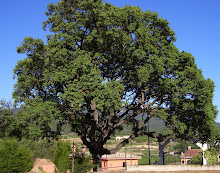To mark and remembered the international Day of the Imprisoned Writer, I paste a piece that I found on the International Freedom of Expression eXchange: The global network for free expression (ifex.org) page.
To mark the Day of the Imprisoned Writer (DoIW) on 15 November, the Writers in Prison Committee of International PEN (WiPC) is highlighting the cases of imprisoned writers and honouring those who have been slain for defending free speech. WiPC is calling on all activists and writers to show solidarity on behalf of persecuted writers by sending appeals to authorities. This year WiPC is shining a spotlight on five people from around the world.
WiPC is urgently asking for help for two dissidents facing long prison sentences.
Chinese writer Liu Xiaobo, former president and current board member of the Independent Chinese PEN Centre, has been detained since 8 December 2008, for advocating political reform and the protection of human rights. He was charged in June 2009 with "incitement to subversion of state power." If convicted, he faces up to 15 years in prison. He has had limited access to his lawyer and family. He has a long history of human rights activism and has been harassed, arrested, imprisoned and censored on numerous occasions. Liu Xiaobo first received support from International PEN in 1989 after he was arrested for protesting in Tiananmen Square.
The other imprisoned dissident that WiPC is focusing on is singer/songwriter Lapiro de Mbanga who has been detained since April 2008 and was fined US$640,000 for writing a song critical of Cameroonian President Paul Biya. He is serving a three-year sentence for alleged complicity in anti-government riots. In October, it was reported that he was suffering from typhoid fever.
WiPC also continues to advocate for Maziar Bahari, a journalist, playwright and filmmaker with dual Iranian and Canadian citizenship who was detained during this year's media crackdown after the disputed Iranian presidential elections in June. After four months in Tehran's Evin prison he was released on bail on 17 October. Although he is now in the U.K., Bahari still faces charges.
The 15 November campaign is also an effort to remember killed journalists and bring attention to the dangers their colleagues continue to face. Russian journalist Natalya Estemirova was abducted from her Grozny apartment in Chechnya and murdered in July this year. She was found shot to death in nearby Ingushetia. She uncovered massive, ongoing human rights violations and was the only reliable source of information on Chechnya for other journalists and human rights organisations. In Mexico, Miguel Ángel Gutiérrez Ávila, an anthropologist, author and indigenous rights activist, was beaten to death in Guerrero state in July 2008.
Please send appeals for these highlighted cases on or around 15 November to the correct authorities as well as to the embassy concerned in your own country. Other suggested actions include organising a petition that can be sent to the embassy of the country on 15 November with a letter requesting an audience with the ambassador or organising a signature campaign to get prominent writers, media personalities and others to sign an appeal. Letters to newspapers, peaceful marches, or an event where works by imprisoned writers will be read, to which the press is invited, are also possible actions. Please report back to WiPC if you get a positive response.
For more information on each of these cases and on where to send specific appeals, please contact Sara Whyatt or Tamsin Mitchell at tel: + 44 (0) 20 7405 0338, or email: sara.whyatt (@) internationalpen.org.uk or tamsin.mitchell (@) internationalpen.org.uk








